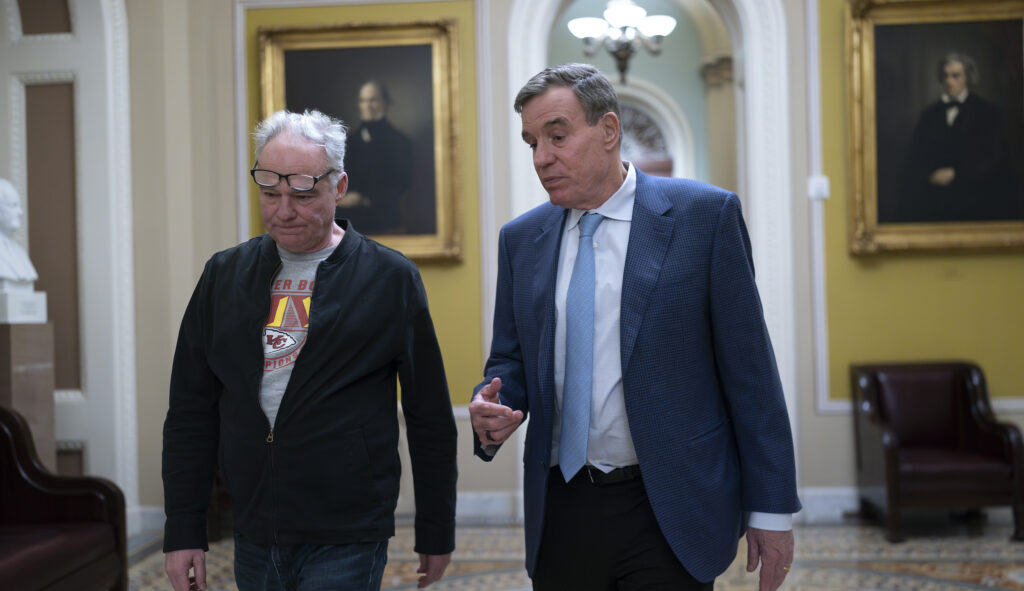The Senate passed a major aviation bill on Thursday, marking an end to a monthslong fight over whether to add more flights to the nation’s busiest runway.
Last month, negotiators in both chambers unveiled a compromise bill that would reauthorize the Federal Aviation Administration for another five years, but a provision to add 10 slots at Reagan National Airport prompted outrage from Washington, D.C.-area senators, who warned the flights would cause delays and a risk to public safety.
The four senators, from Maryland and Virginia, held up passage for days, demanding a vote to strip out the slots, but they ultimately relented with the Friday expiration of the law looming.
The measure passed in an 88-4 vote, with Sens. Ben Cardin (D-MD), Tim Kaine (D-VA), Chris Van Hollen (D-MD), and Mark Warner (D-VA) opposed.
“After months of painstaking work, the FAA reauthorization has passed in the Senate today,” Senate Majority Leader Chuck Schumer (D-NY) said ahead of the final vote. “Aviation safety has been front of mind for millions of Americans recently, and passing this FAA bill is the best thing Congress can do to give Americans the peace of mind they deserve.”
The House departed for the week on Wednesday, meaning the soonest the bill can get through Congress and to President Joe Biden’s desk is Tuesday, but the lower chamber passed a one-week extension to avoid a temporary lapse before it left.
That extension cleared the upper chamber by voice vote less than an hour after the flagship bill.

The fight over DCA slots was not the only holdup on the FAA bill. Negotiators tweaked the legislation at the last minute to resolve a dispute over the Biden administration’s airline refund policy.
Meanwhile, senators saw the reauthorization, one of the final must-pass bills of the current Congress, as a chance to attach unrelated provisions. More than a hundred amendments were filed, but none were ultimately granted a vote.
The Senate operates by unanimous consent, so any one senator could have dragged the process out further. As recently as Thursday afternoon, members from Maryland and Virginia were promising to use every “procedural right” they had to force a vote on the flights.
But they agreed to drop their holds with a simple gesture from Schumer. He brought forward a compromise amendment that would have allowed the flights if the transportation secretary certifies they do not pose a safety hazard.
The amendment was quickly blocked by Sen. Ted Cruz (R-TX), the top Republican on the Commerce Committee, who objected to a vote from the Senate floor.
CLICK HERE TO READ MORE FROM THE WASHINGTON EXAMINER
The one-week extension faced some controversy of its own. A handful of senators delayed the bill briefly as they negotiated a commitment their unrelated measures would receive Senate action by June 21.
Two online safety bills were the subject of discussions, according to Sen. Maria Cantwell (D-WA), the chairwoman of the Commerce Committee, as was an expiring affordable internet program.
